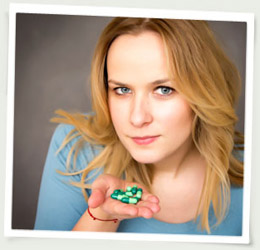
Medication safety tips
Posted in General Health & Wellness on January 15, 1995 by NebraskaHealth.com staff. Last modified on April 21, 2019. Read disclaimer.
Do you ever take over-the-counter or prescription drugs? What about supplements? Like most people, you want to get the best results from your medications; you want them to be safe and effective.
+ Free Shipping & Returns on Eligible Items.
(*Amazon's Top 100 list updated hourly.)
Prescriptions, over-the-counter drugs, and dietary supplements need careful management and should be treated with great respect. Take them only as directed. The wrong combination of drugs, or food and drugs, can have harmful effects. All drugs and supplements have the potential for interactions with other drugs and supplements. Some even react with ordinary foods. If you are taking a drug, the food you eat can make it work faster or slower or even prevent it from working at all. The chart below gives some examples of food effects on drugs.
On the other hand, the drugs and/or supplements you take can interfere with your appetite and/or your absorption of certain nutrients from foods. For example, one drug prescribed for gout, colchicine, can decrease the absorption of vitamin B-12 from foods. Over time this could cause a B-12 deficiency, which may produce symptoms similar to those of Alzheimer's disease. Restoring the B-12 levels eliminates the symptoms. Examples of the effects of nonprescription drugs on nutritional status are shown in the chart lower on this page.
| EXAMPLES OF EFFECTS OF FOODS ON DRUGS | |
|---|---|
| Drug | Effect and Potential Consequence |
| Tylenol ( acetaminophen) | Food delays absorption-so effectiveness is delayed |
| Most antibiotics | Food decreases absorption so effectiveness is decreased |
| Griseofulvin (Fulvicin) (also an antibiotic) | Fatty food increases absorption so levels in the body are increased |
| Nardil, Marplan, Eutonyl, Eutron (antidepressants) | Foods containing tyramine, such as aged cheeses, red wine, beer, chocolate, beef and chicken liver, and sausage, increase the toxicity of the drug with potentially fatal consequences |
| EFFECTS OF PROLONGED USE OF DRUGS ON NUTRITIONAL STATUS | ||
|---|---|---|
| Drug | Effect | Potential Consequences |
| Mineral oil* | Decreased absorption of vitamins A, D, E. and K and beta carotene | Night blindness and bone fracture |
| Laxatives containing phenophthalein, bisacodyl, or senna** | Decreased absorption of potassium and calcium and increased excretion of water | |
| Antacids containing aluminum*** | Decreased absorption of minerals, including phosphorus and calcium | Dehydration, dizziness, and bone fracture |
| All antacids | Decreased acidity of stomach, causing decreased absorption of calcium, iron, and vitamin B-12 | Bone fracture |
| Alcohol | Decreased absorption of vitamins, including thiamine and folate | Iron deficiency anemia and bone fracture |
| Aspirin | Stomach bleeding leading to loss of iron | Trembling and birth defects Iron deficiency anemia |
*Some people use mineral oil as a laxative, although it is not generally recommended for this use.
**Examples include Exlax, Dulcolax, and Senakot.
***Examples include Maalox, Mylanta, and Di-Gel.
- People who are taking a drug for a long period of time (months or more).
- People taking multiple pills, including prescription and over-the-counter drugs and dietary supplements like vitamin pills and herbal remedies.
- People with impaired sight who can't read label directions, and those with memory loss who can't remember the directions.
- People whose food (and, therefore, nutrient) intake is already poor.
- People whose bodies are not functioning at optimum levels because of illness and/or age changes.
DIETARY SUPPLEMENTS CAN HAVE HARMFUL EFFECTS!
Dietary supplements include a variety of products, such as vitamins, minerals, amino acids, and herbal preparations. Some supplements can work like drugs in the body. Taken in high doses, some can cause problems. Because of this potential for harmful side effects, regulations for the marketing of supplements have changed. Be sure to read new labels, instructions, and proceed cautiously. Since the potential for harmful effects is real, it is wise to seek medical advice before taking over-the-counter supplements.
The following table highlights a few of the possible effects when too much of a supplement is taken.
| POTENTIAL EFFECTS OF SOME SUPPLEMENTS ON HEALTH | |
|---|---|
| Product | Potential Toxic Consequence |
| Vitamin D | Excessive levels of calcium in the liver and kidneys |
| Fish oil | Excessive bleeding, especially in people already taking anticoagulants (including aspirin) |
| Vitamin B-6 | Numbness in hands, face, difficulty walking, and paralysis |
| Bee pollen | Allergies and kidney stones |
| Ginseng | Hypertension, confusion, depression, diarrhea, and skin eruptions |
| Vitamin A | Nausea, vomiting, hair loss, hemorrhage, liver damage, and birth defects |
| L-tryptophan (an amino acid) | Eosinophilia-myalgia syndrome, a connective tissue disorder that can be fatal |
| Certain herbal preparations, such as Lobelia | Rapid heart rate, breathing problems, and coma |
| Niacin | Toxic effects on liver and blood sugar problems |
Prescription and over-the-counter drugs and supplements are safe and effective only when they are used properly. Learn all you can about the medications you take. To get the best results, ask questions and "play by the rules." The following guidelines should help you.
TELL YOUR DOCTOR(S) OR PHARMACIST ABOUT:
- Other drugs you are taking. Keep a list with you of all the medications you take, including ones like antacids, laxatives and aspirin, and. any supplements.
- Your eating habits, especially if you follow (or when you change to) a special diet (for example, one that is low in fat or high in calcium). Include your daily intake of coffee, tea, and alcohol.
- Any change in appetite that has been affecting your food intake since you started taking your medication.
- Any change in the effectiveness of a medication since you started taking it (for example, it seems to work faster or slower).
- Any change in symptoms or side effects since you started taking your medication.
- Any allergy or sensitivity you may have to any drug.
- Your daily routine and any changes that might occur (for example, changing work shifts).
ASK YOUR DOCTOR OR PHARMACIST:
- Is there anything else I should do when taking the medicine, like add or avoid any particular food, beverage, supplement, or other medications?
- What time of day should I take it and can the time of day be changed to fit my schedule (for example, if I am changing to night shift)?
- What side effects might I have? For example, could it make me dizzy, nauseous or change the taste of food?
- What should I do if problems occur or if I miss a dose?
- How should I store my medications?
- How is it going to react with other medications I'm taking? Are there any that I no longer need to take?
- How will I know if the drug is working?
BE SURE TO:
- Keep the 24 hour U.S. Poison Control emergency phone number 1-800-222-1222, as well as the number of your doctor and hospital, near the telephone.
- Use only one pharmacist who keeps a record of all your medicines. This will alert him or her to possible harmful interactions. If you change to a new pharmacist, take a copy of the record of your medicines with you.
- Read the package inserts and labels.
- Continue to take your medication-even if you feel better (unless your doctor tells you to stop).
- Keep your medicine in its original container and store it in a cool, dark place. The bathroom medicine cabinet is usually too warm and too moist.
- Get your prescription refilled, if needed, before you run out of medicine.
- Keep all pills out of the reach of children.
NEVER TAKE:
- Drugs prescribed for someone else or give yours to someone else.
- More (or less) than the prescribed amount of any drug.
- Alcohol and medication unless your doctor says it's okay.
- Out-dated or expired medications.
- Supplements or over-the-counter drugs without checking with your doctor or pharmacist first.
ORGANIZE THE WAY YOU TAKE YOUR MEDICATIONS.
You might:
- Make a list of all the pills you are taking, and put it in a prominent place. Tape one of each type of pill with instructions for taking them onto this list.
- Count out your day's pills each morning and separate them out on color-coded charts, pill boxes, or tray with compartments (such as an egg carton).
If you are taking any medications or supplements, take a minute and reflect on what you have just read. Have you followed the above guidelines in using these drugs? Remember, you are the person most responsible for your health and you will benefit the most! Research on drug and nutrient interactions is ongoing. The best resource to answer specific questions on your situation is your doctor, nurse, or pharmacist.
The use of brand names in the publication does not imply endorsement of the products named or criticism of similar ones not mentioned.
Sources:
Take Your Pills Wisely, Jacquelyn W. McClelland, North Carolina Cooperative Extension Food and Nutrition Specialist, and Sarah L. Ash, Visiting Assistant Professor. 1/95.

 Feeling blah? Boost your mood
Feeling blah? Boost your mood Tips for making fitness fun
Tips for making fitness fun Preparing for retirement
Preparing for retirement Summer heat safety tips
Summer heat safety tips Keeping your teeth in tip-top shape
Keeping your teeth in tip-top shape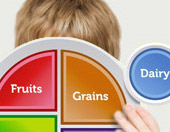 What are the nutritional needs of children?
What are the nutritional needs of children? Tips for preventing sunburns
Tips for preventing sunburns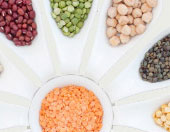 How to cook dried beans
How to cook dried beans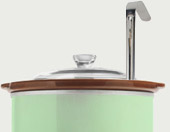 Slow cooking beans in a crock pot
Slow cooking beans in a crock pot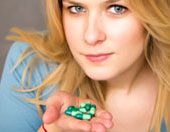 Medication safety tips
Medication safety tips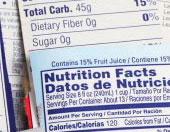 Why are food allergies becoming so common?
Why are food allergies becoming so common? Foods associated with romance
Foods associated with romance